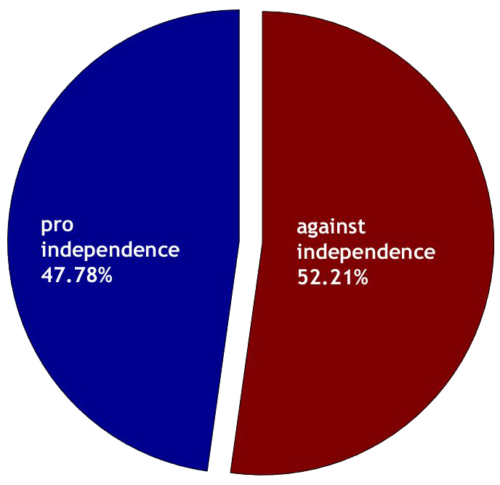It seems that the longer I live in Spain, the more oddities I discover and the stranger the country appears. If you’re only here for a few months, it is quite likely that all you take away from Spain is a memory of the ease of life, the sun, the tapas, and beaches. However, if you live here longer you discover and increasing number of oddities among the people and the society that are often difficult to comprehend.
Example 1: no Green movement
For instance, why is it that in a national parliament of 16 parties (as of the Nov 2019 election), the Green party is not represented at all, in a post-Greta world mind you? It just seems odd how Spain seems to operate on a completely different mindset than the rest of (western) Europe, perhaps slightly more similar to an Eastern European country like Poland, for instance, where the Greens also typically feature as an also-ran.

Instead, the parliament has a whole range of highly patriotic and mostly obstinate provincialist parties who make the formation of a stable government almost impossible.
I suppose to vote for the Green party requires some level of political maturity, economic stability, and also a society that exhibits a certain degree of altruism and a sense of community; values that are particularly strong among the Northern Europeans but traditionally much less developed in Mediterranean countries where a fending-for-oneself kind of attitude tends to prevail. Also, the State is typically seen as highly corrupt and mismanaged and people therefore see it as legitimate or even called for to cheat at any opportunity (on their tax return, for instance) and to generally exhibit a low level of respect toward public and communal spaces/property (which explains the dismal state they are usually in).
Example 2: no qualms about fascism
Or how about the fact that the moment VOX (a right wing neo-fascist party) got voted into parliament, the PP (Spanish conservative party) did not hesitate one second and announced it would form a coalition with them if necessary. Think about it! This would be as if the German conservatives would be jumping at the first opportunity to form a coalition with some neo-Nazi party. And while Hitler has been dead for nearly 75 years, in Spain Franco only died about 40 years ago. How scary is that?!?
While Germany now also has an ultra-right party in parliament again (AfD), the other parties would not dream of forming a coalition with them, although this appears to become increasingly difficult, especially in the former East-Germany.
In France, the ultra-right consistently gets a scary third of the presidential vote while in the UK the boundaries between the Conservatives and ultra-right UKIP become increasingly blurred; but thanks to different electoral systems in these countries (run-offs and first-past-the-post), the ultra-right is less likely to have any direct say in government affairs any time soon (although they do of course influence the political discourse and policies indirectly). Not so in Spain where we only narrowly escaped a PP-CS-VOX coalition.
Example 3: conservative big cities
Another aspect of Spanish politics that strikes me as odd is how the big cities vote conservative. It has been established that there is a correlation between one’s level of education and political leanings (see image below): the more educated you are the more likely you are to vote for parties that advocate left or liberal policies.

Considering that cities offer more professional opportunities for educated people, we can safely assume that cities have a higher proportion of well educated people compared to the countryside, which in turn tends to produce a left or liberal mayor in these cities, even if the remaining country or the city’s immediate surroundings are deeply conservative. For instance, despite the ultra-right national government in Hungary, Budapest has a Green mayor. Or take Bavaria, a state in Germany that has been governed uninterruptedly for nearly 75 years by a hard-right conservative party (CSU), while Munich (its capital) is usually governed by a socialist mayor. Also Berlin, London, and Paris have socialist mayors while the conservatives govern at the national level. In fact, from among the 10 biggest Western European cities, 8 have socialist/left mayors.
Meanwhile, Madrid is governed by a conservative (PP)/neo-liberal (CS) coalition with the support of neo-fascist VOX, and if you look at the results from the past Nov 2019 election, many constituencies in the big Spanish cities were won by the conservative PP, except in Barcelona which has parties that foster their own Catalan flavoured politics of discrimination and exclusion. But overall, the big cities in Spain are fairly conservative while large parts of the mostly rural South (Andalusia), for instance, voted for the Socialist party (see the map in the link above). So again, Spain is completely at odds with the rest of Western Europe here and I am not sure why.
Overall, Spain is still an OK country to live in but the points mentioned above are deeply worrying and make me increasingly uneasy. While democracies all over Europe are (once again) under threat from right wing populists, the Spanish one seems particularly fragile, possibly due to the many corruption scandals and the general lack of a national identity. Most people take refuge in their regional identity and often display almost comical amounts of local patriotism. While I am still waiting for someone to provide me with a single example where nationalism has led to something positive, one can only hope that the disasters from the 20th century will not have been forgotten already and that democracies will know how defend themselves this time round.


